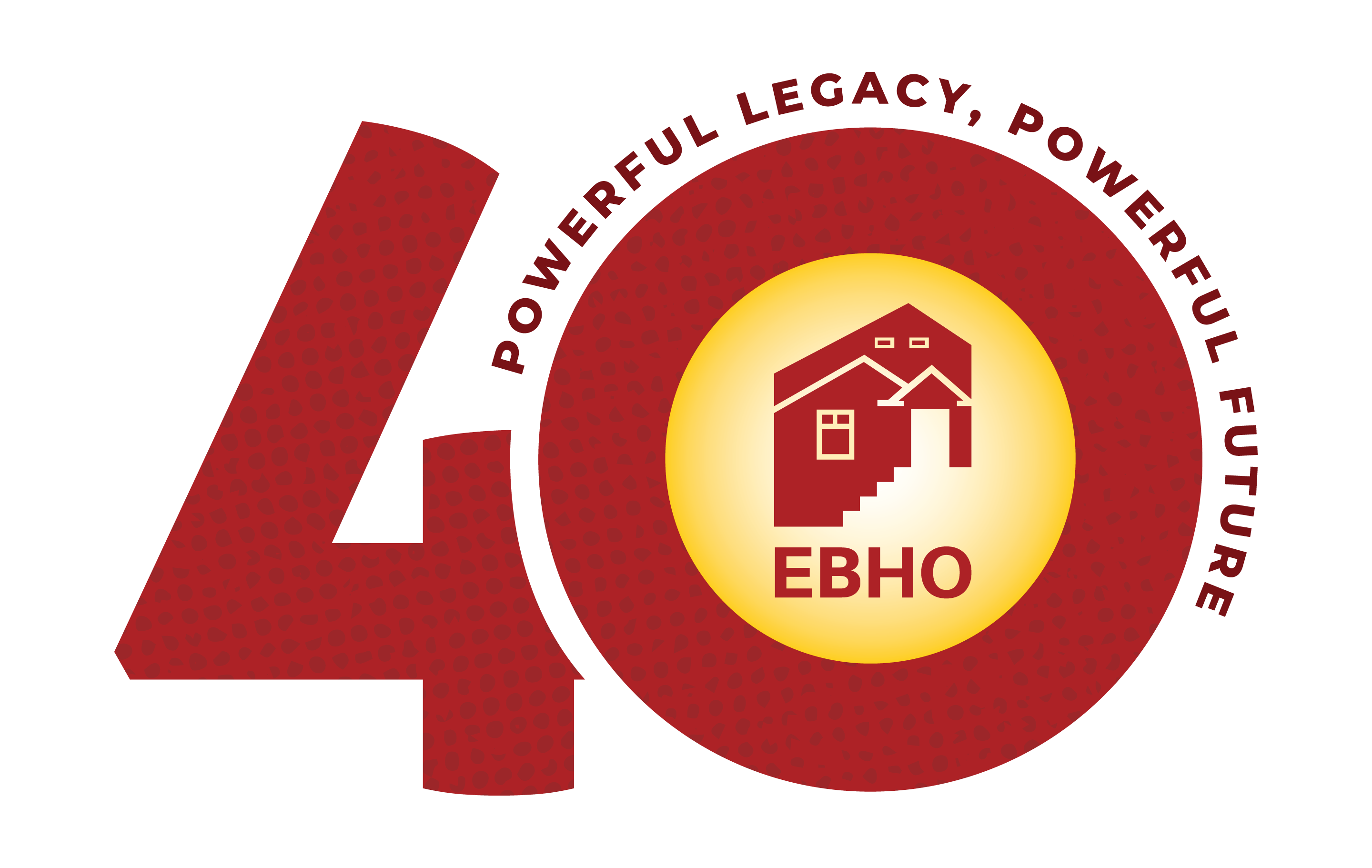Legislative Work
California State Legislation
East Bay Housing Organizations endorses state policy that advances our goals of protecting tenants, preserving existing affordability, and producing new affordable homes. (To read more about EBHO’s “Three P’s” approach to housing policy please visit our Study Room.)
EBHO has a democratic process for endorsing legislation that includes consulting our membership via our Policy Committee, staff, and board.
Please contact Senior Policy Associate Megan Nguyen at megan@ebho.org for more information about EBHO’s legislative advocacy.
Take Action
The 2023 legislative session has now come to an end. Please subscribe to our email list to receive future action alerts.
2023 Legislative Agenda
This year’s legislative session has now come to an end. Thanks to your advocacy, nine of our endorsed bills were signed by the Governor and one is heading to the ballot in 2024!
SIGNED INTO LAW
⭐ AB 480 (Ting) – Surplus Land Amendments (EBHO Co-sponsored)
Mandates that mixed-use projects on surplus land contain at least 300 residential units. Requires that local agencies maintain a list on their websites of all entities who have notified the agency of their interest in exempting surplus land. Expands the definition of exempt surplus land to include land that is owned by a California public-use airport on which residential development is currently prohibited.
East Bay Housing Organizations co-sponsored this bill,
AB 84 (Ward) – Welfare Property Tax Exemption
Makes a number of changes to the Welfare Property Tax Exemption to facilitate access for nonprofit developers. The bill clarifies that land, including vacant land, restricted for the use of affordable housing qualifies for the welfare exemption. The exemption would be accessible from the date the property is restricted for affordable housing, rather than when construction commences. Deed-restricted affordable housing would be presumed qualified for the exemption, requiring the county assessor to conditionally grant an exemption within 30 days.
AB 346 (Quirk-Silva) – Increasing LIHTC Flexibility
In years when tax-exempt bonds are oversubscribed, AB 1288 permits the Tax Credit Allocation Committee (TCAC) to move the additional $500M (as proposed in the 2023/24 state budget) in state credits to the 9% federal tax credit program, as opposed to being restricted to 4% projects, allowing for more production of affordable housing.
AB 1319 (Ting) – Bay Area Housing Finance Authority Clarifications
Adds a set of important modifications to BAHFA, to increase success with the 2024 regional efforts, and ensure the agency can deliver on the legislature’s vision of an impactful regional collaboration that promotes housing stability and affordability in the Bay Area. The bill clarifies BAHFA’s range of lending powers, allows BAHFA to acquire and sell land to advance statutorily authorized purposes, expands types of assistance by tenant protection programs, and provides flexibility in anticipation of potential changes to state law.
SB 4 (Wiener) – Affordable Housing on Faith Lands
Allows for by-right zoning for 100% affordable housing projects on religious institution-owned land or on the land of any independent institution of higher education. Faith-based organizations or nonprofit colleges must agree to maintain the affordability of these homes to households below 80% AMI for at least 55 years for rental housing and 45 years of homeownership opportunities.
SB 423 (Wiener) – Extension of SB 35
Extends and expands the streamlined, ministerial process for approving housing developments that are in compliance with applicable objective local standards established in SB 35 (Wiener, 2017), through January 1, 2036. These provisions, which were initially set to sunset in 2026, have produced thousands of new affordable homes across California.
To be eligible for streamlining, a project must be one of the following – 10% affordable to lower-income households (under 80% AMI) if the jurisdiction failed to meet their regional housing needs allocation (RHNA) requirements for above-moderate income, or 50% affordable to lower-income households if the jurisdiction met their above-moderate income RHNA but failed to meet their lower-income RHNA, or the % in the local inclusionary zoning requirement if that is higher than the requirements mentioned. SB 423 uses the labor requirements in AB 2011 – prevailing wage, healthcare benefits, and apprenticeship workforce.
SB 469 (Allen) – Removing Article 34 Barrier for State-Funded Affordable Housing
This bill clarifies that a housing development that receives a loan or grant from HCD, or low-income housing tax credits (LIHTC) is not subject to Article 34 of the California Constitution, which requires that certain low-income housing projects be subject to voter approval.
SB 555 (Wahab) – Stable Affordable Housing Act of 2023, Social Housing Study
Requires the California Department of Housing and Community Development to conduct a comprehensive study on creating affordable and social housing at scale by December 31, 2026.
SB 567 (Durazo) – Homelessness Prevention Act
Closes commonly exploited loopholes in the California Tenant Protection Act of 2019 (AB 1482, Chiu) that include substantial rehabilitation and owner move-in, and enhances the ability of tenants to defend themselves during eviction by giving them the right of action and allowing local governments to enforce provisions.
On the Ballot
ACA-1 (Aguiar-Curry) – Lower Vote Threshold for Affordable Housing & Infrastructure Bonds
Will propose to voters a constitutional amendment to lower the necessary vote threshold from a two-thirds supermajority (67%) to 55% to approve local general obligation (GO) bonds and special taxes for affordable housing and public infrastructure projects.
Two-Year Bills
AB 653 (Reyes) – Housing Voucher Utilization Program
This bill creates a Federal Housing Voucher Acceleration Program, with an accompanying $200M funding allocation (see note below), to provide resources to public housing authorities (PHAs) to increase voucher utilizations, including housing navigation, landlord incentives, and security deposits. Funds would be allocated based on the number of public housing and Section 8 vouchers maintained by the housing authority and the success rate, defined as % of new voucher families that successfully lease a unit.
AB 919 (Kalra) – Stable Homes Act
Creates a statewide Tenant & Community Opportunity to Purchase Act (TOPA/COPA) program for the sale of rental properties. Tenants, affordable housing providers, and local public entities would be given the right of first refusal to match the highest offer made by any other type of bidder during the sale process. Properties acquired would be subject to permanent affordability restrictions, just cause eviction protections, and could only be resold at an affordable price.
AB 1053 (Gabriel) – Reducing Affordable Housing Costs by Allowing Construction Loans
Allows developers to receive HCD loan funds during construction, reducing the costs of developing affordable housing. HCD must deposit the loan funds with the first lender at or before the closing of the first lender’s construction loan.
AB 1086 (McCarty) – Exempting Fair Housing Investigations From Eavesdropping Laws
This bill would exempt fair housing investigators from California’s eavesdropping laws, allowing fair housing testers to record conversations to investigate and expose illegal housing discrimination. Testers working for a fair housing organization or the Civil Rights Department will be able to record evidence for use in judicial, administrative, legislative, and other proceedings.
AB 1657 (Wicks) – Affordable Housing Bond of 2024
Authorizes $10B in general obligation bonds to support the construction, rehabilitation, and preservation of affordable housing and permanent supportive housing. Proceeds would be used to finance programs to fund affordable rental housing and homeownership programs, including, among others, the Multifamily Housing Program, the CalHome Program, and the Joe Serna, Jr. Farmworker Housing Grant Program.
SB 225 (Caballero) – California Anti-Displacement and Preservation Program (CAPP)
Establishes CAPP to provide resources to affordable housing developers, community organizations, and local jurisdictions to acquire unsubsidized rental housing from the private market, and local jurisdictions to acquire unsubsidized rental housing from the private market, reduce tenants’ risk of displacement and preserve housing as affordable rental housing or homeownership opportunities.
Failed To Pass
AB 312 (Reyes) – State Partnership for Affordable Housing Registries in California
Requires HCD to create a state-managed online database of affordable housing listings and applications. The database will eliminate redundancies among affordable housing applications by standardizing the necessary information typically required (i.e., income, family size, accessibility needs), and the platform will launch by mid-2027. HCD would provide technical assistance to eligible entities to assist in creating the state-managed online platform of affordable housing information.
AB 441 (Haney) – Advance Monthly Payment of State Tax Credits (Earned Income, Young Child and Foster Youth)
This bill authorizes the Franchise Tax Board to provide advance monthly payments, rather than a lump sum once a year, to tax filers eligible for $1,000 or greater in combined tax credits from the CalEITC, Young Child Tax Credit, and Foster Youth Tax Credit.
AB 745 (Bryan) – Reentry Housing and Workforce Development Program
Requires HCD, with community-based organizations and other stakeholders to create a Reentry Housing & Workforce Development Program to fund evidence-based services, long-term rental assistance and workforce development programs for people who were formerly incarcerated in state prisons and who are experiencing homelessness or at risk of homelessness.
AB 799 (Rivas) – Homelessness Accountability and Results Act
Ties grants from the state’s Homeless Housing, Assistance, and Prevention (HHAP) Program with enhanced oversight, transparency, and accountability for local jurisdictions addressing homelessness. Jurisdictions receiving state funds would need to meet at least half of a number of goals, including reducing the number of unhoused people, those becoming homeless for the first time, and those returning to homelessness after reaching permanent housing.
AB 920 (Bryan) – Housing Status Anti-Discrimination Protection
Adds “housing status’” to the list of protected categories under California discrimination law, barring discrimination against people on the basis of their housing status from unequal treatment under programs administered, funded, or overseen by the state.
SB 594 (Durazo) – LLC Owner Transparency
Amends the registration process for LLCs, REITs, and Corporations to require that when the entity is created, the name of the beneficial owner or person(s) with substantial control over the corporation is provided and publicly published in the Business Registry maintained by the CA Secretary of State office.
Vetoed By Governor
AB 1085 (Maienschein) – Creating a Medi-Cal Housing Support Benefit
Makes a Medi-Cal beneficiary eligible for housing support services if they are either experiencing homelessness or are at risk of homelessness. Over 15 states currently provide Medicaid-funding housing support services for those experiencing or are at risk of homelessness.
Regional Policy Committee
EBHO’s Policy Committee organizes members to impact regional issues to create affordable homes and just communities and informs our approach towards action on statewide legislation. Join us to hear updates about developments in local, regional, and state policy, learn how to get involved, and weigh in on our legislative endorsements.
Policy Committee meets on the third Thursday of the month from 10 AM – 12 PM, and it is open to all EBHO members.
For more information or to get involved, contact Senior Director of Policy Jeff Levin at jeff@ebho.org.
2021-2022 Legislative Session
Last year, six of EBHO’s endorsed bills were signed into law!
Read about our past endorsements online, or download our 2021-2022 legislative recap as a PDF.



